It is estimated we have lost 80 per cent of the world’s coral reefs. Coral Reefs provide vital breeding grounds and nurseries for thousands of species of fish, and of course, they are also oxygen producers. If we lose them all, we lose a critical habitat that will tip the balance of nature. Around the world, many coral reef restoration projects have been established to try save them. Here are a few good examples of projects that offer volunteer opportunities and internships.
Sea Communities, Northern Bali
In Les Village, northern Bali, the Sea Communities model is to create alternative livelihoods through conservation. The reef had a history of cyanide poisoning by fishermen catching ornamental fish. By the early 2000s, the reef was bereft of coral and fish. The fishermen reformed their fishing methods using nets and started rebuilding their reefs with concrete structures funded by government grants and an Adopt a Coral donor program. But this funding ran out, and the reef rebuilding program lapsed, and the fishermen had no financial incentive to care for their reefs.
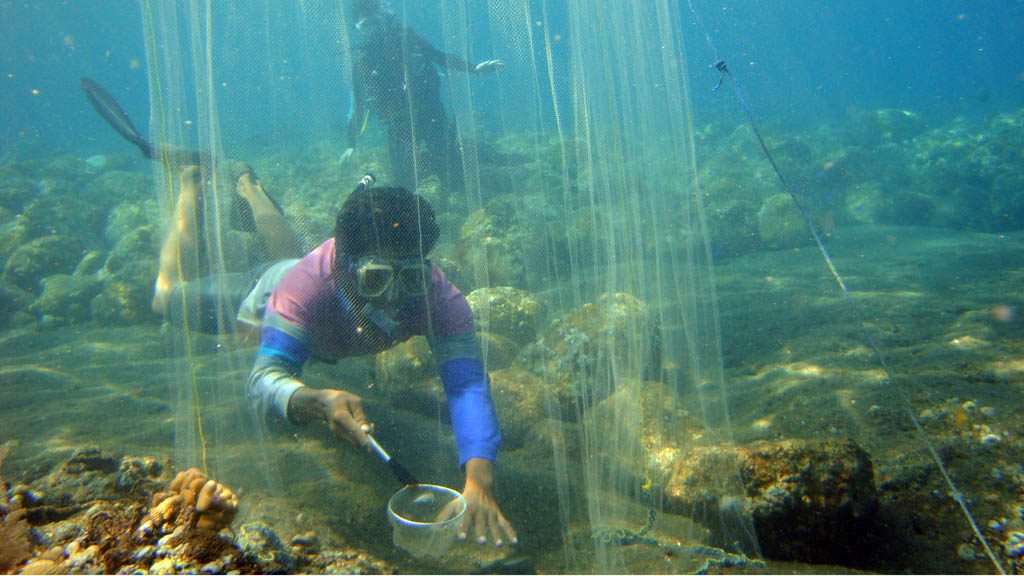
In 2012, Sea Communities introduced voluntourism to restart the reef regeneration program at Les Village, by bringing paying volunteers (voluntourism) and school/university groups to build artificial reefs and coral nurseries and transplant coral onto natural reefs. Their marine activities expanded to land activities. Now they run volunteer programs to teach English and computer literacy to village school children at Les and run community service projects such as building educational and sanitation facilities in the village. Volunteers can do a mix of dive and land-side volunteering activities.
Ocean Quest: Pulau Kapa, Malaysia, Koh Tao, Pattaya, Ao Nang and Koh Phi Phi, Thailand, Amonwana Resort, Indonesia
The founder of Ocean Quest, Anuar Abdullah, has developed an ‘all-natural’ method of propagating coral, having spent most of his life on the coral reefs of Malaysia, observing their behaviour and life cycles, and conducting his own research. The program is only used to rebuild damaged reefs, not to create new reefs, and besides reef restoration the program goes beyond the sea to target the root cause of the problem – impoverished local coastal communities.
Ocean Quest aims to involve the local communities in its CPPs, providing them with an alternative source of income. With support from Sea Shepherd, Ocean Quest runs workshops and training courses in Thailand and Malaysia.
Coral Reef ‘CPR’: Anantara Resorts, Maldives
In the Maldives, the Anantara Group have established a partnership with Coral Reef CPR, an organisation focussed on the conservation, protection and restoration (‘CPR’) of coral reefs. This program involves research, education, reef-clean-up, coral gardening and reef restoration, as well as outreach to local communities and resort guests to address the threats to reefs. Over the last year Coral Reef CPR has established seven coral nurseries within the lagoons surrounding Anantara Kihavah Villas and Anantara Dhigu and Veli Resorts, with over 6000 corals currently being grown.
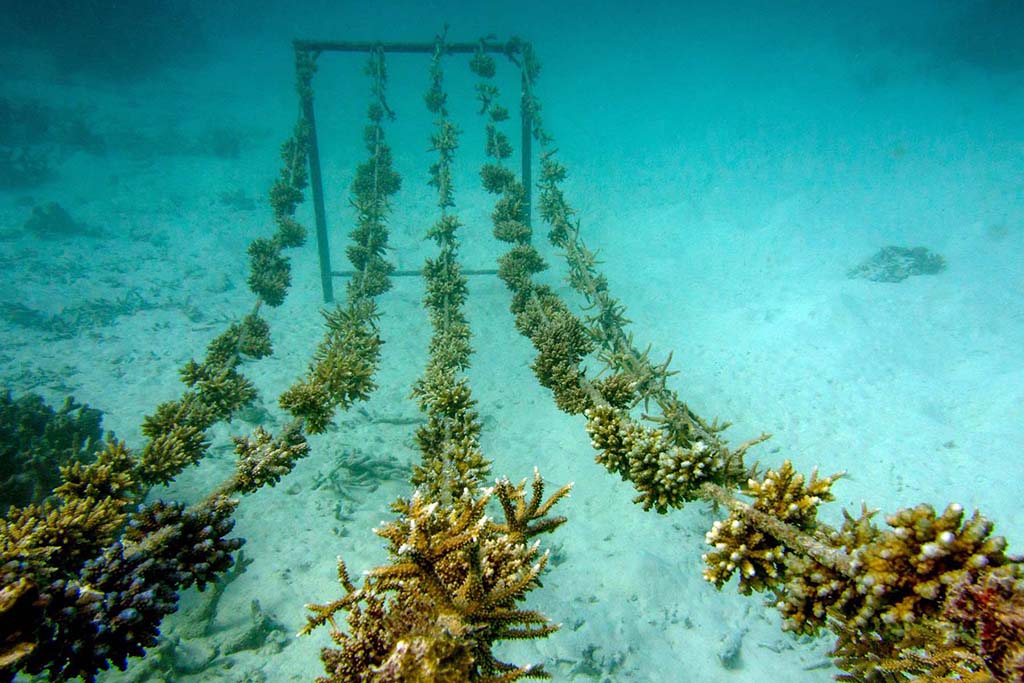
Outrigger Resorts’ OZONE Program, Castaway Island, Fiji
The Outrigger Resorts Global Conservation Initiative to Protect Coral Reefs launched on World Oceans Day in June 2015 and aims to plant and grow an entire football field worth of coral by 2025. The OZONE program is activated at each of the nine beachfront Outrigger Resorts, with year-round efforts to protect the environment and educate guests on how they can contribute. At Castaway Island Resort, Fiji, before your diving day starts, you can help plant roughly 1 sq metre of 40 coral seedlings.
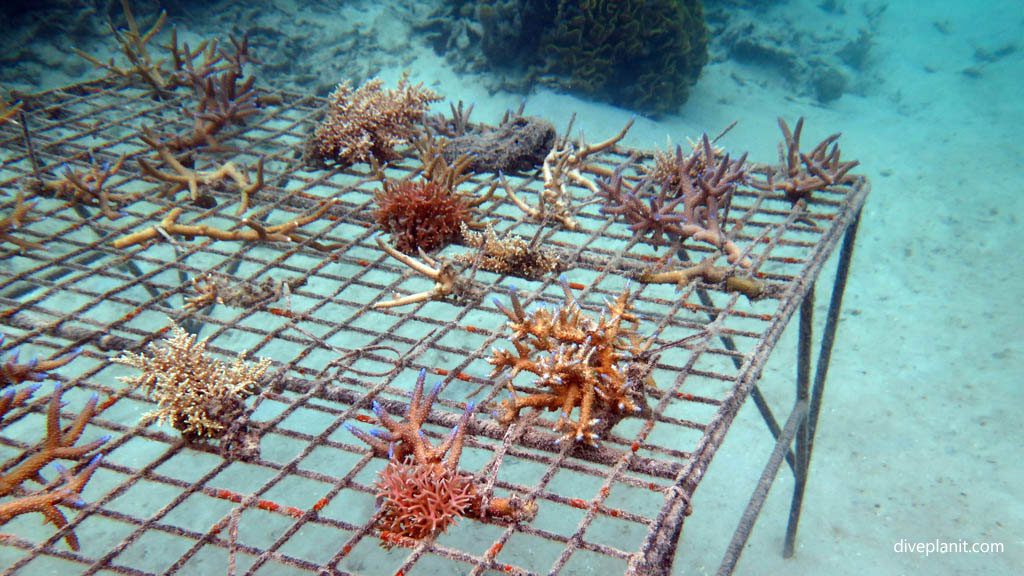
Coral Restoration Foundation: Florida Keys, Bonaire, Fitzroy Island
The Coral Restoration Foundation is a non-profit ocean conservation organisation which has created a unique method of cultivating corals on ‘coral trees’ that has been implemented in several locations around the world, including Bonaire and more recently, on the Great Barrier Reef. The four nurseries in Florida Keys have grown to include over 16,000 colonies across nearly 300 distinct genotypes and 10 different species. The team has now out-planted over 66,000 colonies of endangered coral species to the Florida Reef Tract and has a number of educational and volunteer opportunities including a citizen science portal for data entry and internships.
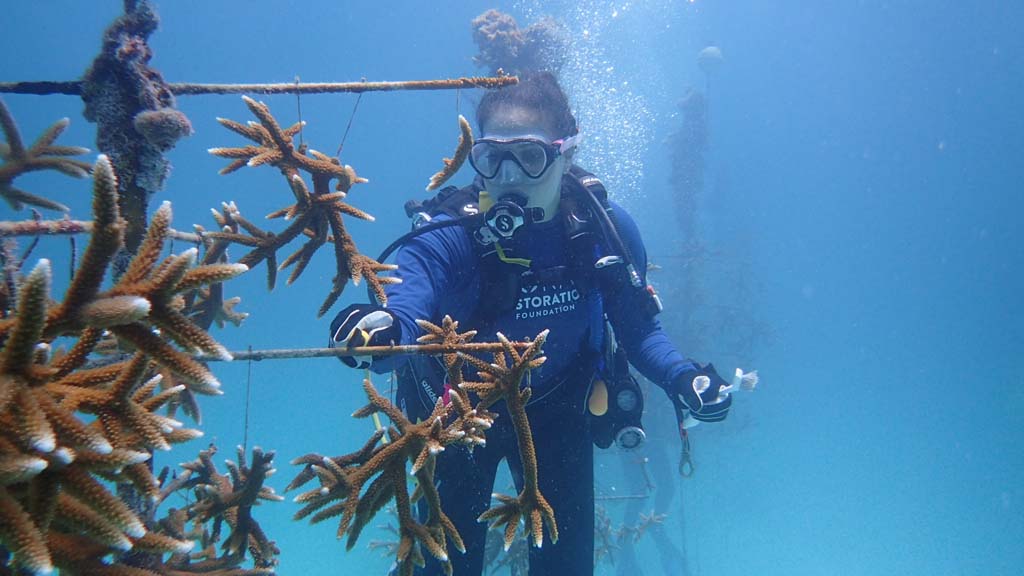
Gili Eco Trust: Gili Islands, Indonesia
The Gili Eco Trust runs a range of programs to help improve the marine environment surrounding the Gili Islands, including waste management and eco tourism. The coral restoration program uses Biorock technology to create artificial coral reefs, by building a steel structure and putting a low voltage of direct current through it when sunk in the ocean, which speeds up coral growth. The Trust welcomes volunteers on either short or long term basis.
Raja Ampat SEA Centre: Raja Ampat, Indonesia
SEA Centre is a conservation initiative managed by Papua Explorers Resort that runs several programs, including the implementation of rangers to monitor human traffic to world famous manta cleaning station Manta Sandy and ‘Yaf Ceru’ their coral garden, which aims to reverse damage done to the reefs of the Dampier Strait by dynamite and cyanide fishing. Internships and volunteer opportunities are available.

Coral Gardening in Koh Tao, Thailand
Founded by ocean lovers Frank van Klaveren and Vera Aarden, Koh Tao’s coral garden was first ‘planted’ in 2008 using coral fragments that have been harvested or raised in nurseries. The so-called ‘CoralGarden’ was created in 2016, modular flower structures, blending coral restoration with art, and providing divers with a unique underwater experience. The Garden ‘flowers’ are made with help from local communities, dive schools and tourists, using steel rebar, chicken wire, and concrete.
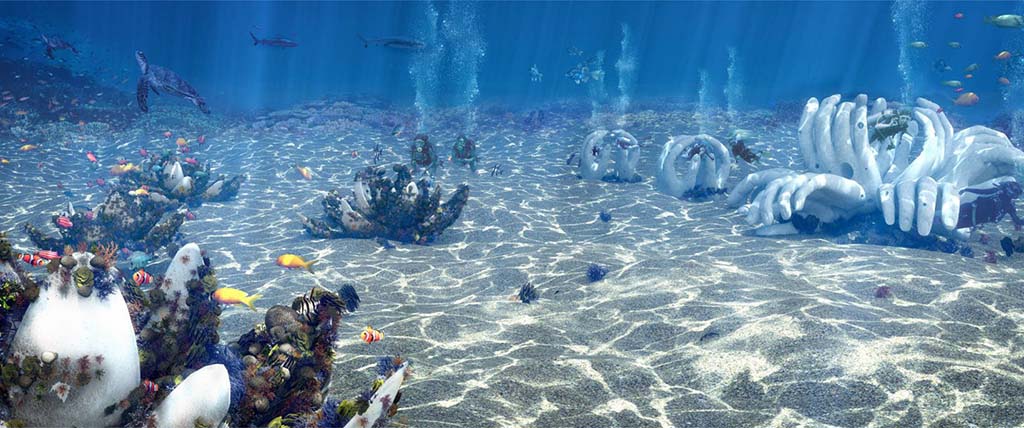
Tropical Research and Conservation Centre (TRACC): Pom Pom Island, Sabah, Malaysia
TRACC has several ongoing projects that plant coral to help reefs recover from human impacts, especially plastic pollution and blast fishing, involving the local community (to ensure blast fishing does not continue) and with help from many volunteers and visitors. The main challenge to coral growth here is the coral rubble left behind by blast fishing, which baby corals have difficulty attaching themselves to, so the projects aim to stabilise the slope, build new reef as well as grow new coral. The sloping rubble is stabilised with soft coral nets, which slows the rubble movement and which the turtles do not destroy. They then plant soft corals and sponges on the nets to hold the rubble together.
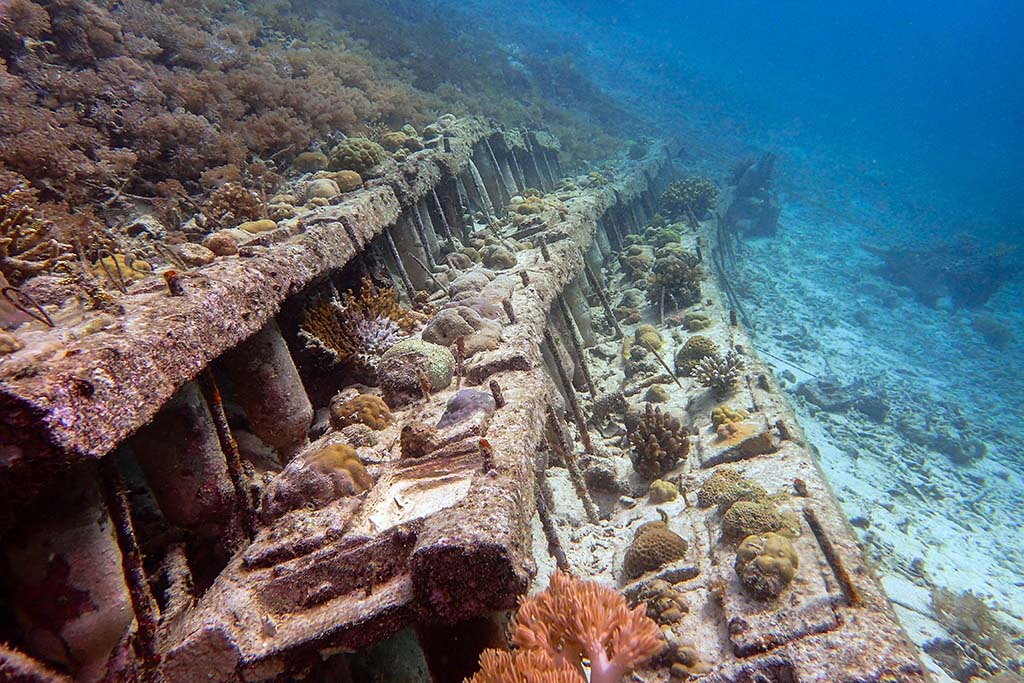
Coral Reef Restoration Project: Cozumel, Mexico
The Cozumel Coral Reef Restoration Program started in 2013 by Dr Germån Mendez and uses concrete coral platforms. The foundation also provides educational programs, including a 2-day PADI Project Aware Coral Reef Conservation Specialty course, in which students can learn all about coral conservation over two days with a PADI specialty diploma at the end.
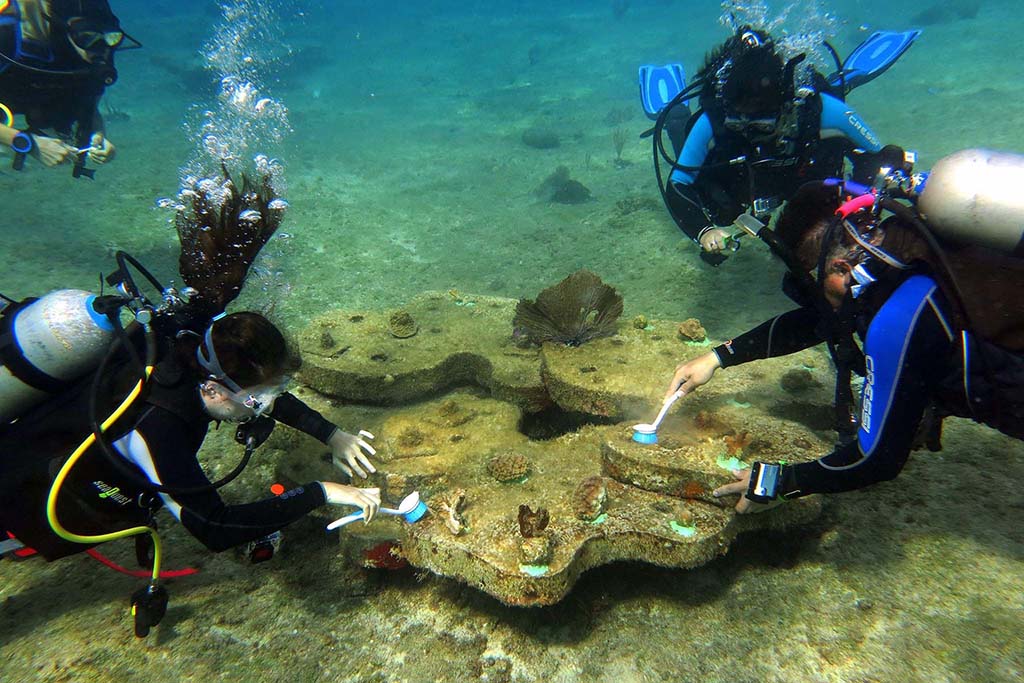
Caribbean Reef Buddy, Grenada and Carriacou, West Indies
The Reef Buddy program runs volunteer programs throughout the year, with a choice of two weeks to four week program or an eight week-course which includes the PADI Eco Dive Master qualification.
If you liked this post, you might also like:
- Saving the Reef with Coral Trees
- Want to help save turtles and sharks? New internship opportunities in PNG
- How the Sea Women of Melanesia can save Papua New Guinea’s coral reefs
- Outrigger Zone: Ozone; Global Conservation Initiative to Protect Coral Reefs

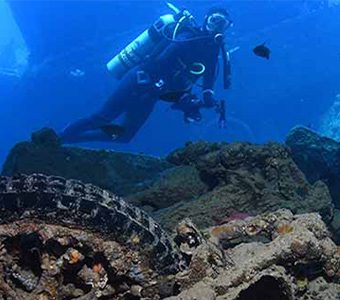
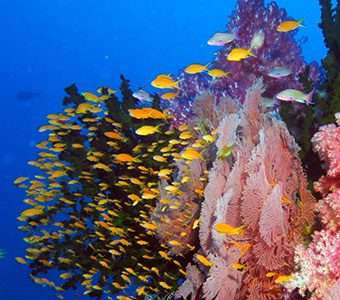

I intend to volunteer to dive to restore coral when I retire in 4 years